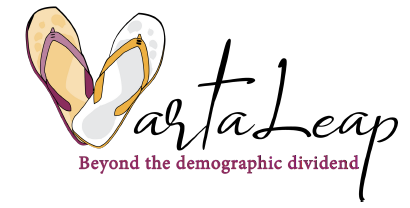Youth Rights & Duties Draft

GenNation Building:
Youth Rights and Duties Draft Declaration
The bulging youth demographic is expected to play a significant role in articulating and building the nation. Look around you, and almost every positive change around the world and in India is led by the young. The epic role played by young leaders in the COVID -19 crisis cannot be applauded more. Campus movements for change have been alive and impactful, over the past year, as have several CSO and Government initiated youth citizenship movements. In many ways, its how young people would describe, a ‘woke’ moment, with Jagriks (Jagruk + Nagriks) being born every day. Across the world, we can see, the battle to save the planet is led by children still in school; the fight against Chinese oppression in Hong Kong is led by the youth as is the Black Lives Matter movement to bring about racial equality. At the same time, heads of state across the world are getting younger by the day.
With the exponential increase in access to knowledge for young people, they now are more opinionated, aware, decisive and aspirational. It’s a rare inflection moment, which can pivot us way beyond the demographic dividend thinking that permeates the youth discourse today. The society has placed immense expectations of the young people to lead nation-building for India. But this duty can only be accomplished if we co-create the right space and context and narrative in which the young can have agency, take important decisions and reach their own potential even as they make change in the world.
This process has been initiated and is being facilitated by the vartaLeap Coalition , a cross-sectoral, collaborative space for co-learning with a vast combined experience that is taking the discourse of 'Every Youth a Jagrik' forward at scoul (scale with soul) to move youth-centric development from the margins and make it a new norm in every space that young people occupy or that impacts young people.
This draft declaration has been ‘crowd created’ through a process that has involved over 100 individuals and organisations. This process continues to follow the open architecture model and we are looking for your contributions as young people, adults, institutions and communities to the foundational architecture of youth rights and duties because it is in this intergenerational dialogue lie the seeds of a real and sustainable future for this plant.

Indicative practices:
a) Corporates, Political parties, Governments, CSOs, Educational institutions and institutions/ firms in all sectors to reserve a % age of seats in their highest strategic and decision-making bodies for youth below 35
b) All youth-related policies along with budgetary allocations to be co-decided with a representative and reference group of young people including budgetary allocations and strategies for skilling, SRHR, education e.t.c
c) Right to decidein all matters related to their lives including relationships and sexual preferences, career choices, domestic issues, etc. as well as all crucial decisions that affect the whole family
* Being “political” connotes awareness of the processes of privilege and power in a space
Indicative practices –
a) To take charge of community problems and challenge the status quo; inspire others to do the same under the constitutional framework
b) To seek authentic information, and co-create narratives of hope through their work, inspire and support other young people to do the same towards building meaningful collegiality.
c) To seek opportunities for empowering and capacitating themselves on leadership skills with a life long learning lens.

Indicative practices –
a) Co-create new or transform existing spaces for young people to congregate and undergo ably facilitated and mentored self to society journeys designed on universal principles.
b) Inspire communities to co-own shared/ communitythese spaces along with the young people.
c) Ensure diversity and engagement by design across class, caste, gender, faith, sexual orientation, abilities, ideology, perspectives etc. in shared and other organisational spaces without social-political-economic barriers.
Indicative practices –
a) To make friendships with people from across class, caste, gender, faith, sexual orientation, ideology, perspectives, abilities etc., and collectivise towards nurturing collegiality in diverse groups of people through shared experiences
b) To acknowledge conflicts as a means of progress in a relationship; build upon the diversity and address social inequalities
c) To dialogue and inspire dialogue as the means of creating a better understanding of a shared journey and bringing together polarised groups.

Indicative practices –
a) %ge of Skilling and Education budgets for employability, provide better terms and create a sustainable ecosystem for entrepreneurship development; also amplify role models in local geographies with proven models bringing b) Skilling and vocational institutions to co-create courses with young people and companies based on aspirations and needs; life capacity enhancement and career counselling to be part of the experience, as well as ample internship opportunities for learning by experience maturing into appropriate economic and social security opportunities.
c) Alternate forms of dignified livelihoods that support and regenerate the biodiversity and environment; decent jobs with adequate social protection in both organised and unorganised sectors
d) Affirmative action for increasing diversity of opportunities for women, sexual and other minorities and excluded groups; job reservations to also include economic criteria
Indicative practices –
a) To build a world view by seeking out and meaningfully engaging with differing perspectives and nurture such engagement into a passion for a social cause and transformation
b) To plan life and career choices in a way that one finds time for consistent and sustainable engagement with issues of choice by offering personal talents and skills and creating well-being for fellow humans and the planet; completing volunteering commitments with excellence, zeal and reflectivity.
c) To co-create and nurture spaces and projects for other young people to volunteer wholeheartedly in the areas of their passion in their available time; nurture and commit to the well-being of self and others; develop it as a learning experience,such that all young people get as much or more than they give and thus become volunteers for life
100
Endorsements so far!
Interested to see who all have endorsed the Youth Rights and Duties declaration. You can download the list of all endorsers here.







